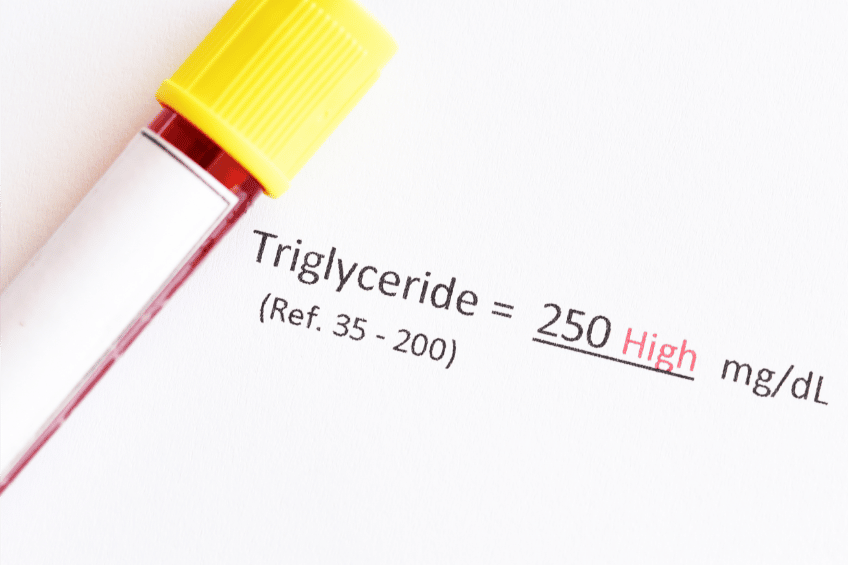What are triglycerides?
Triglycerides are the most common type of fat found in the body. They are produced from carbohydrate-rich foods that we eat, such as meat, dairy products, cooking oils and fats, etc. They are then packaged into fats and delivered to the cells and tissues of your body to be used for energy. Extra triglycerides (the energy that your body doesn’t need at the moment) are stored as fat for later use. If you regularly consume more calories than you burn, such storages will come in the form of excess fat in the midsection and other parts of your body.
Your triglyceride level (measured as part of the test called a lipid panel) should normally be below 150 mg/dL. [1]
Higher levels may indicate that you eat too many carbs and don’t exercise enough. The increase could also be due to other conditions, such as:
- Type 2 diabetes or prediabetes;
- Metabolic syndrome (or insulin resistance), when high blood pressure, obesity and high blood sugar come together;
- Low levels of thyroid hormones (hypothyroidism);
- Rare genetic diseases;
- Obesity;
- Excessive alcohol use;
- Liver or kidney disease. [1, 2]

Why should I lower their level?
Having high triglyceride levels can be dangerous for your health.
First of all, high triglycerides are often associated with the risk of atherosclerosis, in which fats build up within the arteries causing their narrowing and hardening. As the problem gets worse, clots can form, resulting in heart diseases, such as coronary artery disease, or heart attack, as well as stroke. Very high triglycerides can also cause acute inflammation of the pancreas (pancreatitis). [2, 3]
In most cases, however, we will lower raised triglycerides indirectly, by treating the conditions they indicate, such as diabetes, the metabolic syndrome, high blood pressure, obesity, high levels of LDL (so called “bad”) cholesterol, and low levels of HDL (so called “good”) cholesterol. [4]
All of the above can be significantly improved by simply implementing certain changes in your habits and lifestyle. As a result, your triglyceride levels will go down, and your overall health will get better.
